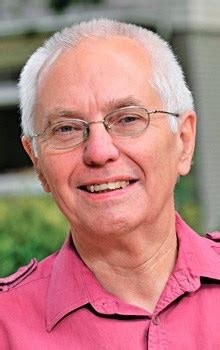A Quote by John Marshall
Related Quotes
First, what is a revolution? Sometimes I'm inclined to believe that many of our people are using this word "revolution" loosely, without taking careful consideration [of] what this word actually means, and what its historic characteristics are. When you study the historic nature of revolutions, the motive of a revolution, the objective of a revolution, and the result of a revolution, and the methods used in a revolution, you may change words. You may devise another program. You may change your goal and you may change your mind.
But the people did get it. They had lost something -- not exactly their fear, but their patience. Suddenly it seemed unbearable to go on accepting these systems, these portly little idiots in their blue suits, for another year, and then for another day, another hour. That special sort of impatience is the power-surge of revolution.
As to the history of the revolution, my ideas may be peculiar, perhaps singular. What do we mean by the revolution? The war? That was no part of the revolution; it was only an effect and consequence of it. The revolution was in the minds of the people, and this was effected from 1760 to 1775, in the course of fifteen years, before a drop of blood was shed at Lexington.
We may live without poetry, music and art; We may live without conscience, and live without heart; We may live without friends; we may live without books; But civilized man cannot live without cooks. . . . He may live without books,-what is knowledge but grieving? He may live without hope,-what is hope but deceiving? He may live without love,-what is passion but pining? But where is the man that can live without dining?
The justification - the idea that we have a right to invade another country and determine another people's destiny - is frightening. And I fear really for the future of that occupation. What happens now, and twenty years from now, and forty years from now, given our case? People in the United States may feel like when we don't see it on CNN twenty-four hours a day, it sort of disappears. But it doesn't disappear for the people who have to live under occupation - and their children and their children's children.
The revolution of Jesus is in the first place and continuously a revolution of the human heart or spirit...it is a revolution of character which proceeds by changing people from the inside through ongoing personal relationship to God in Christ and to one another. It is one that changes their ideas, beliefs, feelings, and habits of choice, as well as their bodily tendencies and social relations. It penetrates to the deepest layer of their soul. External, social arrangements may be used to this end, but they are not the end, nor are they a fundamental part of the means
The people who are working, paying their taxes are put into the system so that affordable housing could be built in neighborhoods that they probably live in that. That they may not want to, they may pay a premium so that they could live where they want to live and you end up with just another massive redistribution of wealth.
From its earliest days, the Cuban Revolution has also been a source of
inspiration to all freedom-loving people. We admire the sacrifices of the Cuban people in maintaining their independence and sovereignty in the face of the vicious imperialist-orquestrated campaign to destroy the impressive gain made in the Cuban Revolution. Long live the Cuban Revolution. Long live comrade Fidel Castro.
Can I see another's woe, And not be in sorrow too? Can I see another's grief, And not seek for kind relief? Can I see a falling tear, And not feel my sorrow's share? Can a father see his child Weep, nor be with sorrow filled? Can a mother sit and hear An infant groan, an infant fear? No, no! never can it be! Never, never can it be!
When the industrial revolution happened there was the Luddistic movement, and there was a fear that machinery would replace all the labor. Whenever we had a technological revolution we had this fear. So if you look backwards, these fears were not justified, and I think they were driven by our very human inability to visualize what new jobs will be created by this new technology.


































